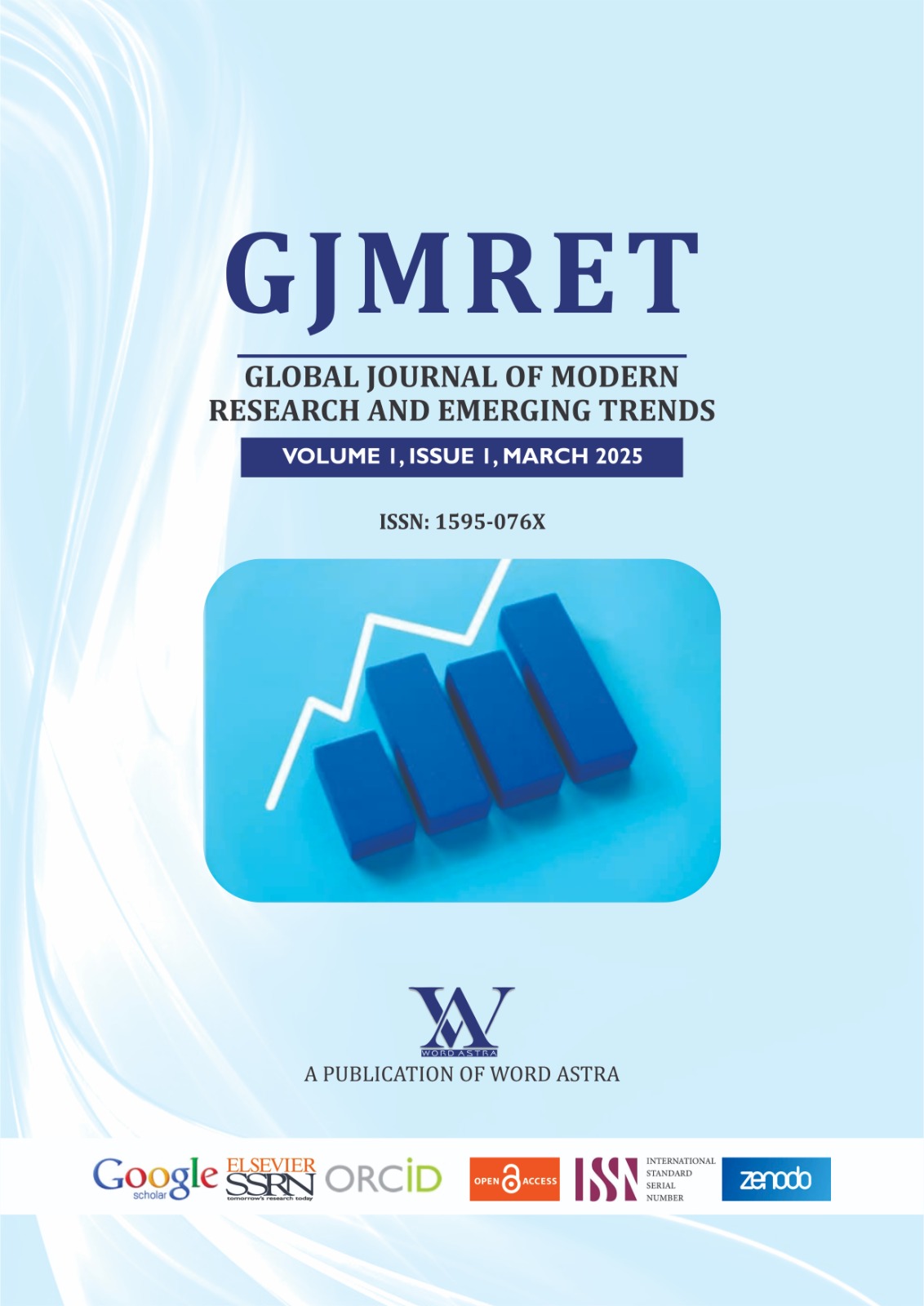
The Impact of the U.S-China Trade War on Nigeria's Economy: Vulnerabilities, Opportunities, and Policy Recommendations
Abstract The escalating trade war between China and the United States, the world’s two largest economies, has significantly disrupted global trade dynamics, with far-reaching consequences for developing nations like Nigeria. Given Nigeria’s strong economic ties to both countries, the trade war has heightened economic vulnerabilities, particularly in terms of rising import costs, trade imbalances, and declining oil revenues. This study examines the implications of the China-U.S. trade war on Nigeria’s economy, utilising the Heckscher-Ohlin theory of international trade as a theoretical framework. A historical and descriptive research design was adopted, incorporating both primary data and secondary sources such as academic publications, trade reports, and policy documents. The findings reveal that the U.S.-China trade war stems from systemic competition for global economic dominance, leading to increased tariffs, supply chain disruptions, and fluctuations in global commodity markets, particularly the oil sector, which is vital to Nigeria’s economy. The study highlights that over 70% of Nigeria’s export commodities remain largely unprocessed, which exacerbates the country’s dependence on international trade and external market conditions. Furthermore, Nigeria’s economic stability is highly susceptible to global economic fluctuations, as disruptions in U.S.-China trade relations affect foreign investments, oil demand, and import costs. The study concludes that Nigeria must adopt strategic economic policies to mitigate these vulnerabilities. It recommends export diversification, regional trade expansion under the AfCFTA, investment in local manufacturing, and flexible trade policies to reduce the country’s overreliance on crude oil exports and foreign imports. By strengthening domestic industries and engaging in multilateral trade partnerships, Nigeria can enhance economic resilience and stability in the face of global trade disruptions.
Download Article


